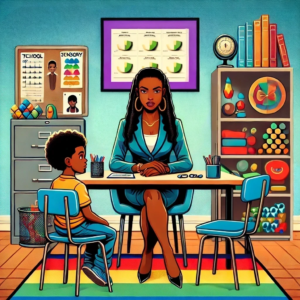
In recent years, there has been a growing recognition of the importance of autism awareness, particularly concerning individuals from marginalized communities, women, and those diagnosed later in life. Despite progress in understanding autism spectrum disorder (ASD), there remains a significant gap in awareness and support, particularly in communities of color and among females.
Autism Awareness
In larger cities, where resources exist, awareness and accessibility are still key challenges. Autism, or ASD, is a neurodevelopmental disorder characterized by difficulties in social interaction, communication challenges, and repetitive behaviors or restricted interests. It affects people of all races, genders, and ages, but certain groups face unique barriers to diagnosis and support. For people of color, cultural stigma, lack of access to resources, and disparities in healthcare can delay diagnosis and intervention. There may also be misconceptions about autism within these communities, leading to underdiagnosis or misdiagnosis. To address this, culturally competent and accessible outreach programs, along with education initiatives, are essential.
Differences in Diagnosis
Women and girls with autism often present differently from their male counterparts, leading to underrecognition and late diagnosis. They may exhibit subtler symptoms or develop coping mechanisms that mask their difficulties, making it harder to identify their needs. Raising awareness about the unique presentation of autism in females is crucial for early intervention and support.
Late Diagnosis
There are individuals who receive autism diagnoses later in life, sometimes not until their 40s, 50s, or 60s. These late diagnoses can be a result of improved understanding of autism in adulthood, as well as increased awareness and acceptance of neurodiversity. However, they also highlight the long-standing lack of recognition and support for adults on the spectrum. However, efforts to expand outreach, reduce barriers to access, and promote cultural competence are ongoing priorities.
Call to Action
Increasing autism awareness is not only about recognizing the diversity of experiences within the autism community but also about advocating for inclusive and equitable support systems. By bridging the gap in awareness, particularly for people of color, women, and late diagnoses, we can ensure that all individuals with autism receive the understanding, acceptance, and support they deserve to thrive.








One Response
Oh my goodness. This was very informative.